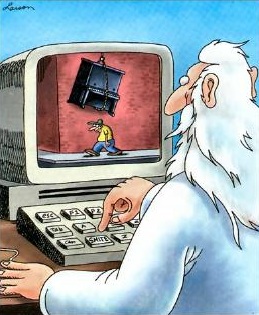In a recent debate with William Lane Craig, Stephen Law proposed an interesting argument in defense of atheism. He provided many examples of "good" in the world and from those concluded that an evil God does not exist. He then challenged Craig to show how one can believe that a good God can exist when one believes that an evil God does not exist. In a very simple form, the argument looks like this:
1. An evil God does not exist.
2. An evil God and a good God are the same
3. Therefore, a good God does not exist
4. Craig's God is a good God
5. Therefore, Craig's God does not exist
At this time, I'm not going to focus on the first premise (although it will play a part). I think that Craig handled it adequately in the debate (Randy Everest at Possible Worlds addresses the concerns with the premise and Craig's responses in his analysis of the argument). However, premise 2 is the one that did not receive much attention from Craig and where I think that he could have also shown the argument's weakness. I want to quickly go over a few observations about the second premise.
God's Existence, Science and Faith, Suffering and Evil, Jesus' Resurrection, and Book Reviews
Showing posts with label Agnosticism. Show all posts
Showing posts with label Agnosticism. Show all posts
Book Review: The Making of an Atheist
Introduction
The Making of an Atheist by James Spiegel is a short book on the non-rational reasons that people may have for rejecting the existence of God. It was of interest to me because it doesn't address intellectual reasons, but emotional reasons. The book talks about the psychology of atheists. The book is divided into five chapters and is a mere 128 pages, so it makes for a quick read.Chapter 1: Atheistic Arguments, Errors, and Insights
In the first chapter Spiegel defines what he means when he uses the word "atheist". That being pretty much anyone who does not affirm the existence of God (this would include agnostics). He then discusses some of the reasons that atheists give for refusing to believe that God exists. He explains the moral argument against God, the hypocritical behavior of people within the Church, and answers both. He addresses other issues in the Church, such as intellectual laziness (which has lead to the charge of "god of the gaps" reasoning) and disunity over side issues. He concludes that the Church, itself, gave the atheists the ammunition against God; they just point out the problems. The Church needs to recognize the truth of what has been revealed and do something about it instead of ignoring it.
Find other posts related to:
Agnosticism, Atheism, Book Review, Morality, Psychology, Sin
Subscribe to:
Comments (Atom)


